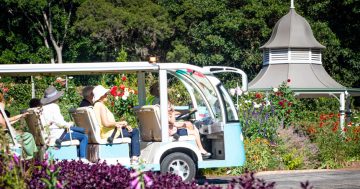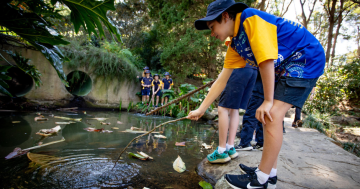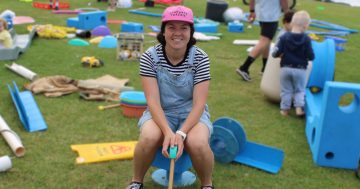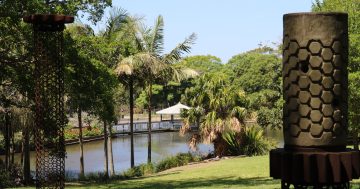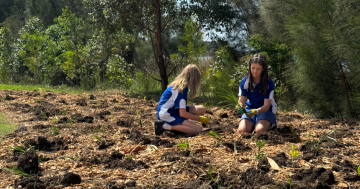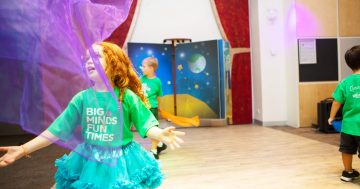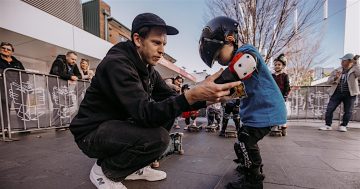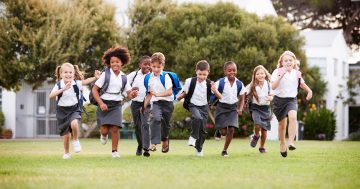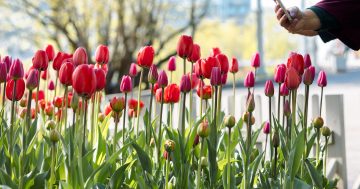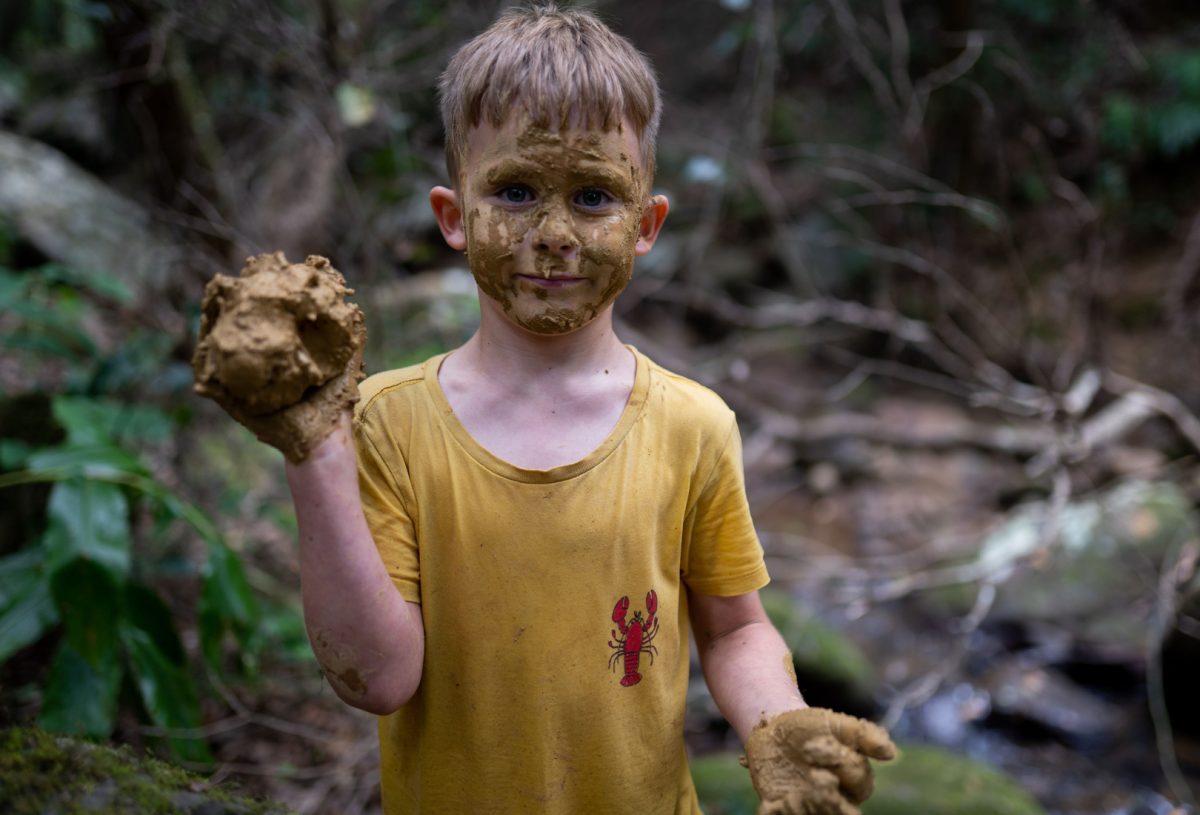
Bush Magic Adventures is encouraging Illawarra kids to embrace unstructured nature play. Photo: Supplied.
Earlier generations played in creeks, built bush shelters and climbed trees as children – skills that are slowly being lost.
However, Bush Magic Adventures – inspired by Norway’s forest schools – is encouraging Illawarra kids to get back to the childhoods of their parents by taking them into the bush and teaching them to embrace free-range nature play.
Katrina Venables, a qualified outdoor educator and professional hiker, and Simone Potter, a qualified primary school teacher and school counsellor, started the first program as a homeschooling drop-off nature school in January last year.
Nearly two years on, their schedule includes a 0-5-year-olds playgroup with parents, a 3-6-year-olds nature play drop-off program, a 5-13-year-olds bush school program, and family camps.
While not associated with NSW Education Standards Authority (NESA) or the Department of Education and Training (DET), the kids still refer to it as “school”, as they experience everything from messy play stations to tree climbing.
“They do things like cooking on open fires and a lot of creek play looking for frogs and yabbies, bushwalking, tug of war and shelter building, and we also teach them a lot about tools, so how to use an axe, a sword and a knife,” Katrina said.
The upcoming school holiday program was booked out within less than a week.
“I can see that people want their children playing outside and playing in nature – it’s like the old street neighbourhood,” Katrina said.
“When I ask any adult, ‘What are your best memories as a child?’, it’s always going to the creek, playing with my friends, building swings and shelters, coming home when the lights turn on because dinner’s ready.”
With her focus on unstructured nature play, Katrina has been working with Western Sydney University professor Tonia Gray on research findings.
“What we’re finding is that the neighbourhoods and the free-range play is all but gone in Australia,” she said.
“There are some little pockets where it’s facilitated among communities, but really, children just don’t do it anymore and they need to.
“It’s actually classed as detrimental to their health if they aren’t having unstructured play in nature.
“In this society, everything’s just so structured – you go to school, and you have to sit at the desk and you have to do this curriculum, and then after school, you have to go to the swimming lesson and the dancing.”
She said children were often shocked when first asked what they wanted to do but naturally fell into exploring as they were taught risk assessment and safety.
“Children are growing up and becoming young adults and making these really big decisions when they’ve actually never had the opportunity to make decisions for themselves,” she said.
“The research my business partner has done, she’s a psychologist, and she has seen that if children partake in risk-taking behaviour at a very young age, and continue to do so and assess risks with a good supporting adult, it means they’ll take less risks when they’re older.
“Which is why we’ll put an axe in a child’s hands and we’ll ask them ‘What do you think you need to do to keep safe?'”

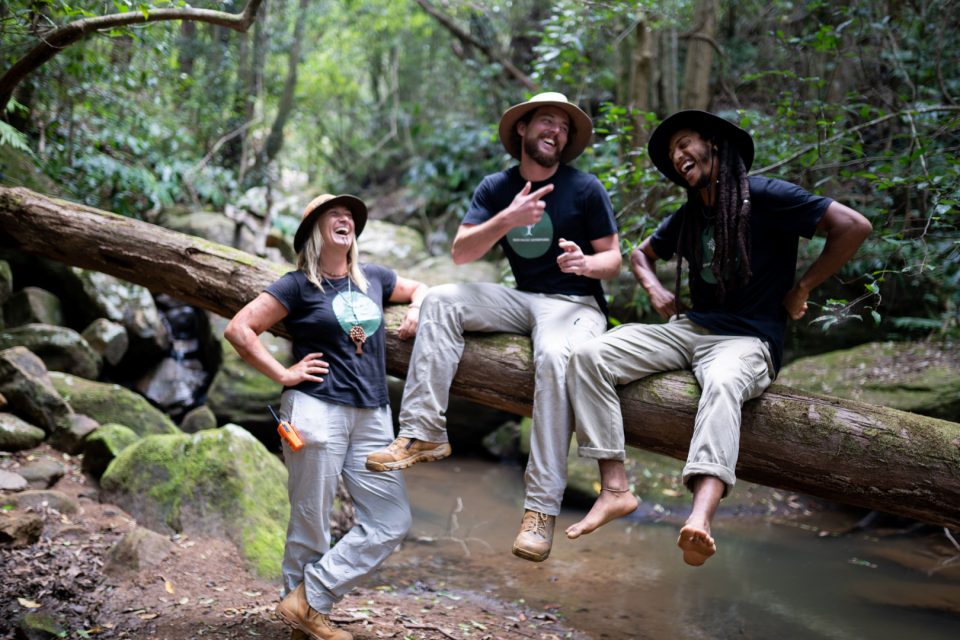


She said while originally participants were predominantly homeschoolers, now almost 50 per cent attended mainstream school but came to the program one day a week.
“We’re finding that children who have a 5 per cent or 10 per cent attendance rate at school, will come to us a day a week and their attendance rate goes up to 80 per cent because they’re having that opportunity to just be free and play.”
Starting with just two staff, the business now has 25 staff from qualified educators to specialised outdoor qualifications.
“The market was there and the timing was right, and people were really searching for something like this,” she said.
Katrina and Simone first met when their children attended Keiraville Community Preschool, where the two helped develop a nature forest play program, before becoming friends and coming up with the business idea.
“We both wanted to start what was called a forest school – it’s like a Norwegian approach to schooling,” she said.
“Children over in those countries go to a forest school up until the age of seven or eight, before they even begin kindergarten with a pencil in their hands.
“They’ve got very high school success rates. That’s where the pedagogy comes from.”
Plans now include school excursions, after working with the NESA board to develop the outdoor education curriculum for schools in 2024, which will allow them to meet curriculum outcomes.
Already located at Don’s Farm in Dapto, Mount Keira, Tathra and Tilba, there is now demand for another site in the Illawarra’s northern suburbs.








